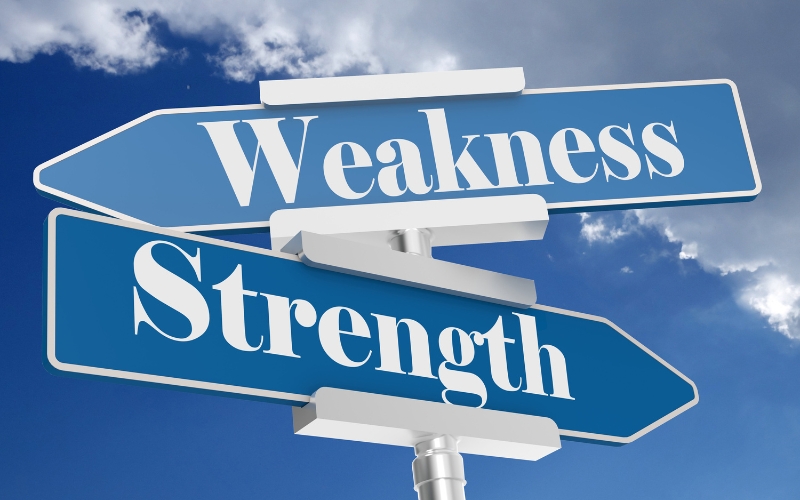Choosing the right Content Management System (CMS) is a crucial decision for any business looking to establish or enhance its online presence. A CMS serves as the backbone of your website, impacting everything from its functionality and scalability to its user experience and search engine visibility. With a wide range of options available, each offering unique features and capabilities, selecting the perfect CMS can be daunting. This guide simplifies the process by helping you understand your business needs, comparing popular CMS platforms, and evaluating key factors that will ensure your choice aligns with your goals.
Understanding Your Business Needs: Features to Look For in a CMS

Choosing the right content management system (CMS) for your business website begins with a clear understanding of your unique needs and goals. A CMS is not just a tool for managing your website’s content; it’s a critical component that can directly impact your website’s performance, user experience, and business growth. Aligning CMS features with your business objectives is the first step toward ensuring your website serves its purpose effectively.
Scalability for Growing Businesses
Scalability is one of the primary considerations when selecting a CMS. If you run a small business but have plans to expand, your CMS must accommodate future growth. For instance, an e-commerce startup may need basic functionality initially but should be able to scale to support thousands of products, users, and transactions as the business grows. Platforms like Shopify and WordPress with WooCommerce are excellent examples of scalable CMS options that cater to growing businesses.
Ease of Use for Efficient Management
A CMS must be user-friendly, especially for businesses without dedicated technical teams. Ease of use ensures that your team can update content, upload images, and manage pages without constant reliance on developers. Drag-and-drop editors and intuitive dashboards, as offered by platforms like Squarespace or Wix, make managing your website simpler and more efficient, freeing up time and resources.
SEO Capabilities for Better Visibility
Your CMS should include built-in SEO features to help improve your website’s visibility on search engines. These features might include customizable meta tags, SEO-friendly URLs, and the ability to integrate tools like Google Analytics. For instance, WordPress is a popular choice for its robust SEO plugins like Yoast SEO, which allows businesses to optimize their content effortlessly.
E-commerce Support for Online Stores
If your business involves selling products or services, your CMS must provide comprehensive e-commerce functionality. Features such as inventory management, secure payment gateways, and customizable product pages are essential. Shopify, for example, is tailored specifically for e-commerce, offering an all-in-one solution for businesses of all sizes.
Integration with Third-Party Tools
A CMS that supports integrations with other tools and services ensures seamless operations. For example, integrating email marketing software, CRM platforms, or social media channels can streamline your marketing and customer engagement efforts. Platforms like Drupal and Joomla excel in providing robust integration capabilities for businesses with complex needs.
Tailoring Your CMS to Your Business
Ultimately, your choice of CMS should be guided by your business’s current requirements and future goals. Whether you’re running a blog, a service-oriented website, or an online store, identifying the right features will ensure your CMS serves as a powerful tool for success. By taking the time to analyze your needs, you’ll lay the foundation for a website that grows and evolves with your business.
Comparing Popular CMS Options: Strengths and Weaknesses

Selecting the right content management system (CMS) for your business website requires a clear understanding of the strengths and weaknesses of popular platforms. Each CMS offers distinct features tailored to specific business needs, making it crucial to evaluate their functionality, ease of use, pricing, and scalability. Let’s explore some top CMS options and what they bring to the table.
1. WordPress: The Versatile All-Rounder
Strengths: WordPress powers over 40% of websites globally, showcasing its flexibility and popularity. It’s an open-source platform, allowing users to customize every aspect of their website. With thousands of plugins and themes, WordPress caters to businesses of all sizes, whether you’re running a blog, an e-commerce store, or a corporate website. Its SEO-friendly nature and tools like Yoast SEO make it a favorite for improving search engine rankings.
Weaknesses: The level of customization requires some technical expertise. Managing updates and security can be challenging without proper technical support.
Ideal for: Small to large businesses, blogs, and e-commerce sites needing a high level of flexibility.
2. Shopify: The E-Commerce Specialist
Strengths: Shopify is purpose-built for online stores, providing comprehensive tools for inventory management, secure payment gateways, and marketing integration. It’s user-friendly and requires minimal technical knowledge, making it ideal for small businesses. Shopify also offers reliable support and scalability for growing businesses.
Weaknesses: Limited customization compared to open-source platforms. Its monthly subscription fee and transaction fees for non-Shopify payment gateways can increase costs.
Ideal for: Businesses focused on e-commerce with no need for advanced customization.
3. Drupal: The Powerful and Secure Choice
Strengths: Drupal is known for its advanced security features and scalability, making it suitable for large enterprises and government organizations. It’s highly customizable, with robust modules and themes for building complex, data-heavy websites.
Weaknesses: The platform has a steep learning curve and often requires professional developers for setup and maintenance.
Ideal for: Enterprises needing high security, scalability, and custom functionality.
4. Joomla: The Balanced Solution
Strengths: Joomla strikes a balance between ease of use and flexibility. It supports multilingual websites and offers powerful extensions for customization.
Weaknesses: While more user-friendly than Drupal, Joomla is less intuitive than WordPress or Shopify, which may deter beginners.
Ideal for: Medium to large businesses with multilingual needs or custom requirements.
5. Squarespace: The Designer’s Dream
Strengths: Squarespace offers stunning templates and a drag-and-drop interface, making it a great choice for creatives and small businesses. It integrates essential tools for SEO, blogging, and e-commerce.
Weaknesses: Limited customization compared to open-source platforms. The monthly subscription fee can be high for businesses requiring advanced features.
Ideal for: Small businesses, artists, and designers prioritizing aesthetics and ease of use.
Choosing the right CMS depends on your business’s specific needs, budget, and technical capabilities. WordPress offers unmatched versatility, while Shopify caters to e-commerce needs. For advanced functionality, Drupal excels, whereas Joomla and Squarespace provide balanced solutions for less complex requirements. Understanding these platforms ensures you select a CMS that aligns with your goals and supports your business growth.
Key Factors to Consider When Making Your Final Decision

Choosing the right CMS for your business website requires careful consideration of several key factors. While the features of a CMS are important, other critical elements such as budget, technical expertise, support, and future scalability can significantly influence your decision. Here’s a closer look at these factors to help you make an informed choice.
Budget: Balancing Cost and Features
One of the first things to consider is your budget. CMS platforms range from free open-source options like WordPress to subscription-based services like Shopify and Squarespace. Open-source platforms may seem cost-effective initially, but they often require investments in hosting, themes, plugins, and maintenance. In contrast, subscription-based CMS platforms include hosting and support in their pricing but may have limitations in customization or higher monthly costs.
It’s essential to evaluate not just the upfront costs but also the long-term expenses associated with updates, support, and additional features. Align your choice with your financial plan while ensuring the CMS meets your essential requirements.
Technical Expertise: Matching Skills with Complexity
The technical expertise of your team plays a crucial role in CMS selection. Platforms like WordPress and Drupal offer extensive customization options but require technical knowledge for setup and maintenance. If your team lacks technical skills, hiring developers or support staff may become necessary.
On the other hand, platforms like Squarespace and Shopify are designed for non-technical users, providing intuitive drag-and-drop interfaces and pre-built templates. While these platforms are easier to use, they may limit your ability to implement highly customized features.
Future Scalability: Planning for Growth
Your CMS should not only meet your current needs but also accommodate future growth. As your business expands, your website may require additional functionality, increased storage, or the ability to handle more traffic. Platforms like WordPress and Drupal are highly scalable, allowing businesses to add new features or pages as they grow. Shopify, while scalable for e-commerce, may require higher-tier plans to accommodate expanded needs.
Support and Community: Access to Help When Needed
Reliable support is a critical factor, especially for businesses without dedicated IT teams. Subscription-based platforms like Shopify and Squarespace typically offer 24/7 customer support. Open-source CMS platforms rely on community forums and third-party developers for assistance. Assess the support options available to ensure timely help when issues arise.
Testing and Trialing CMS Platforms
Before committing, take advantage of free trials or demo versions offered by many platforms. Testing a CMS gives you hands-on experience with its interface, features, and ease of use. Engage your team to gather feedback and ensure the platform aligns with your workflows.
By weighing factors like budget, technical expertise, scalability, and support, you can select a CMS that aligns with your current goals and adapts to future needs. Testing platforms before committing ensures a smooth transition and sets the foundation for a successful website.
Conclusion
Selecting the ideal CMS for your business website involves more than just picking a popular platform. By understanding your unique requirements, exploring the strengths and weaknesses of top CMS options, and considering factors like budget, technical expertise, and scalability, you can make an informed decision that supports your long-term goals. Whether you prioritize ease of use, advanced functionality, or robust e-commerce capabilities, the right CMS will act as a powerful tool to drive your business’s online success. Invest time in testing and trialing platforms to ensure your chosen CMS provides the foundation for a seamless, scalable, and efficient website.

